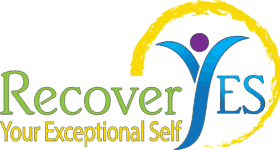If someone you love is a drug addict…or struggling with any addiction, it is incredibly painful to watch them self-destruct. It makes no sense.
The vibrant person that you shared your life with disappears. You’re left with more questions than answers.
Their urge “to use” has become so strong and deep that the substance or behavior has essentially taken over. The rational decision-making capabilities are “off-line.” The brain has been hijacked! The addict has been tricked into believing that the addictive behavior or substance is necessary for survival in that moment.
![]()

The constant fear and concern creates a stressful environment that causes severe damage that should be taken seriously. The experience is traumatic…and the symptoms are similar to those of people diagnosed with post traumatic stress disorder (PTSD).
Just take a look at the story of Alicia.
Drug addiction causes families to come to fear a ringing phone or a knock on the door. It causes vague obituaries. I read the papers and I follow the news; and it is scary. “Died suddenly” has officially become obituary-speak for “another young person found dead from a drug overdose.” via Lessons I learned from loving a drug addict
So in that state of hypervigilance, your body is in a constant state of stress and you are experiencing real PTSD and trauma in that moment.
So often, we minimize the effect of actually living with an addict. The truth is that being a recovery stakeholder…the family member or friend of an addict…is traumatic. There’s just no way to get around that.
When the addict engages in recovery, some of the behaviors that were triggering you into hypervigilance constantly, their acting-out behaviors, their lying and manipulation hopefully, have stopped.
And that’s a good thing.
You could go for 20 to 30 days where everything seems to be going fine. The addict is in recovery. They’re sober. They’re doing what they need to be doing to stay that way.
Then…
All of a sudden, you’ll have an episode where you’re doubting everything they say. You’re waiting for them to relapse. Or, you’re suspecting that they have relapsed.
This is a normal part of YOUR healing process. Your brain is not used to the idea that something bad is not going to happen. It’s something you’ve got to work through.
The conversation in your head might go something like this, “Oh, my addict is in recovery and they are doing okay. This is part of MY healing process. I’m not crazy because I’m suspecting everything that they’re doing right now.”
As recovery stakeholders, we have certainly walked many miles in your shoes. We see the naive that often delays addressing this problem.
We feel like getting our loved ones into recovery will solve the problem. If they stop doing what they’re doing all this chaos and insanity will fall away.
And when that isn’t how it happens, it’s a shock. “Holy Moly, the promise of recovery is not happening for me.”
The reason why it’s not happening for you is because you are a trauma survivor and have minimized the damage you’ve experienced. If you are living with an addict…even one in recovery…you need help too!
